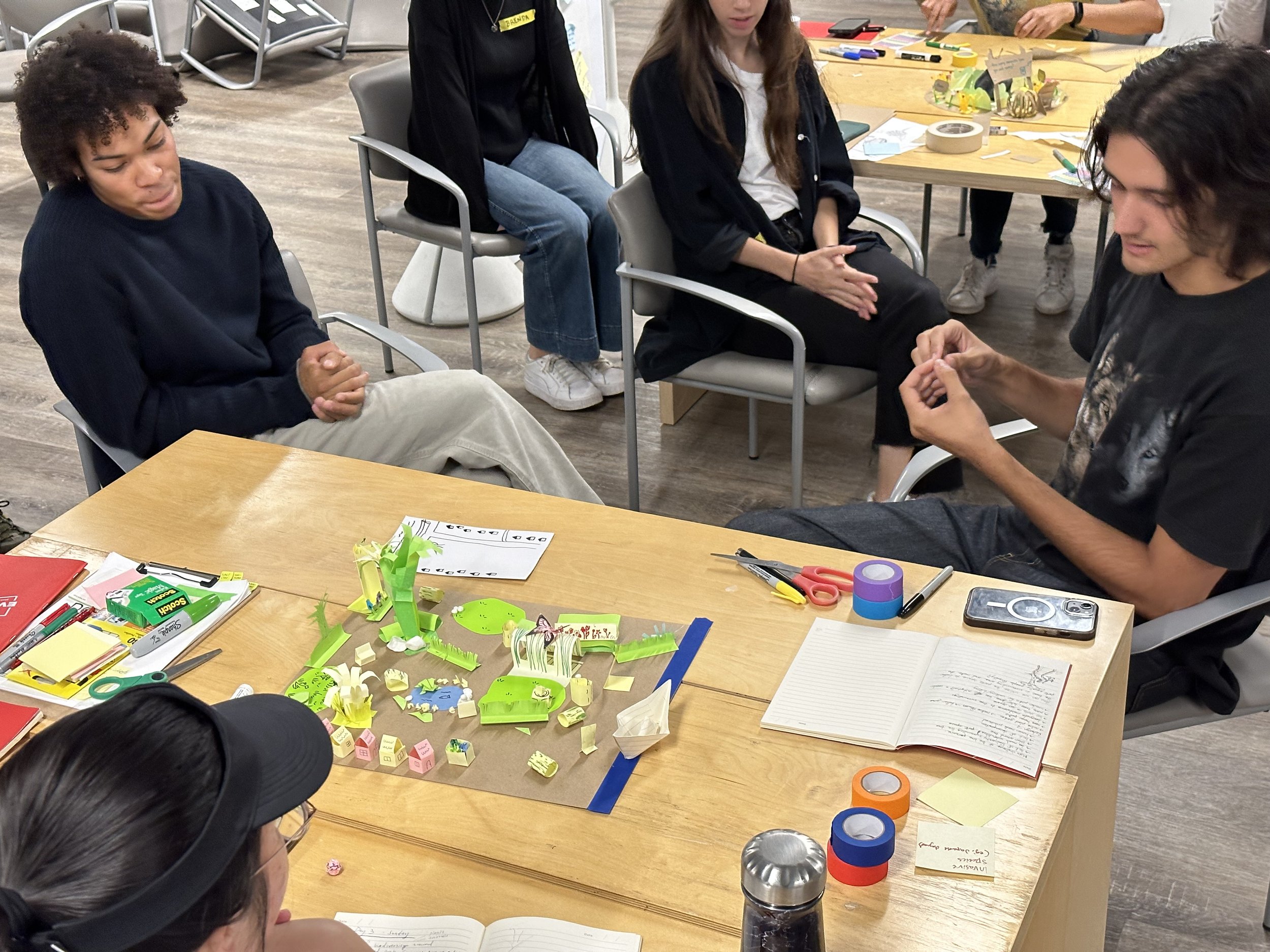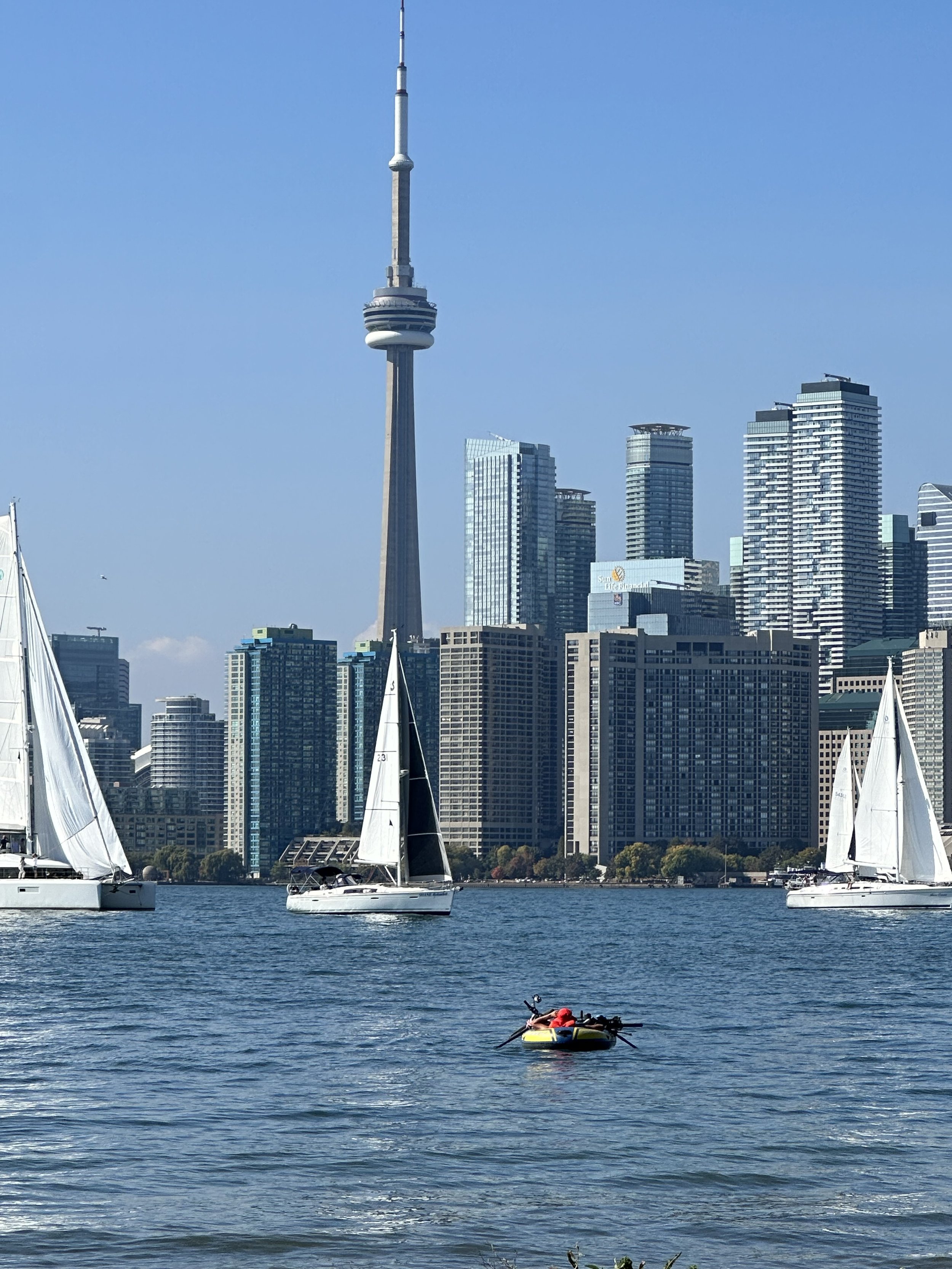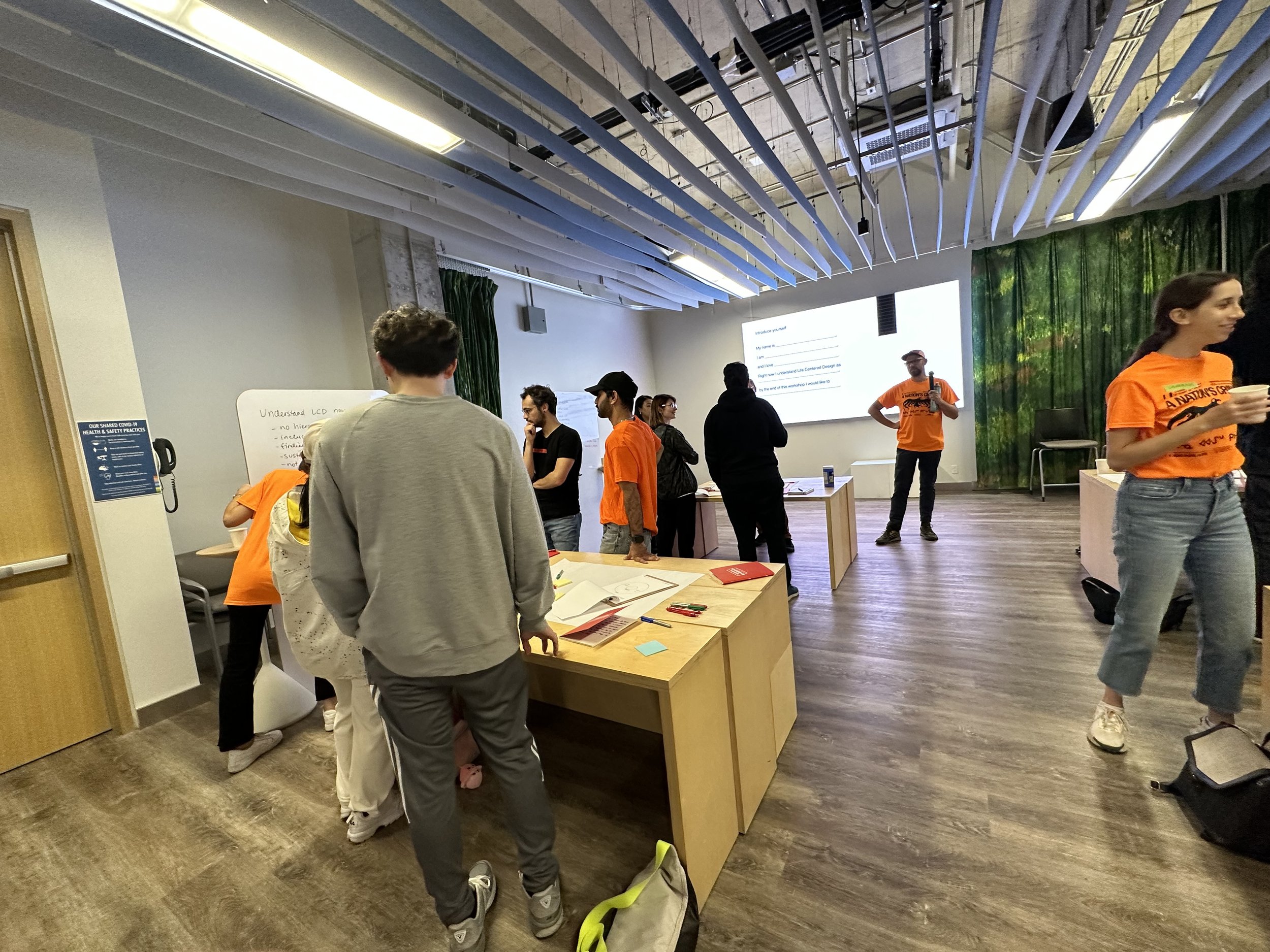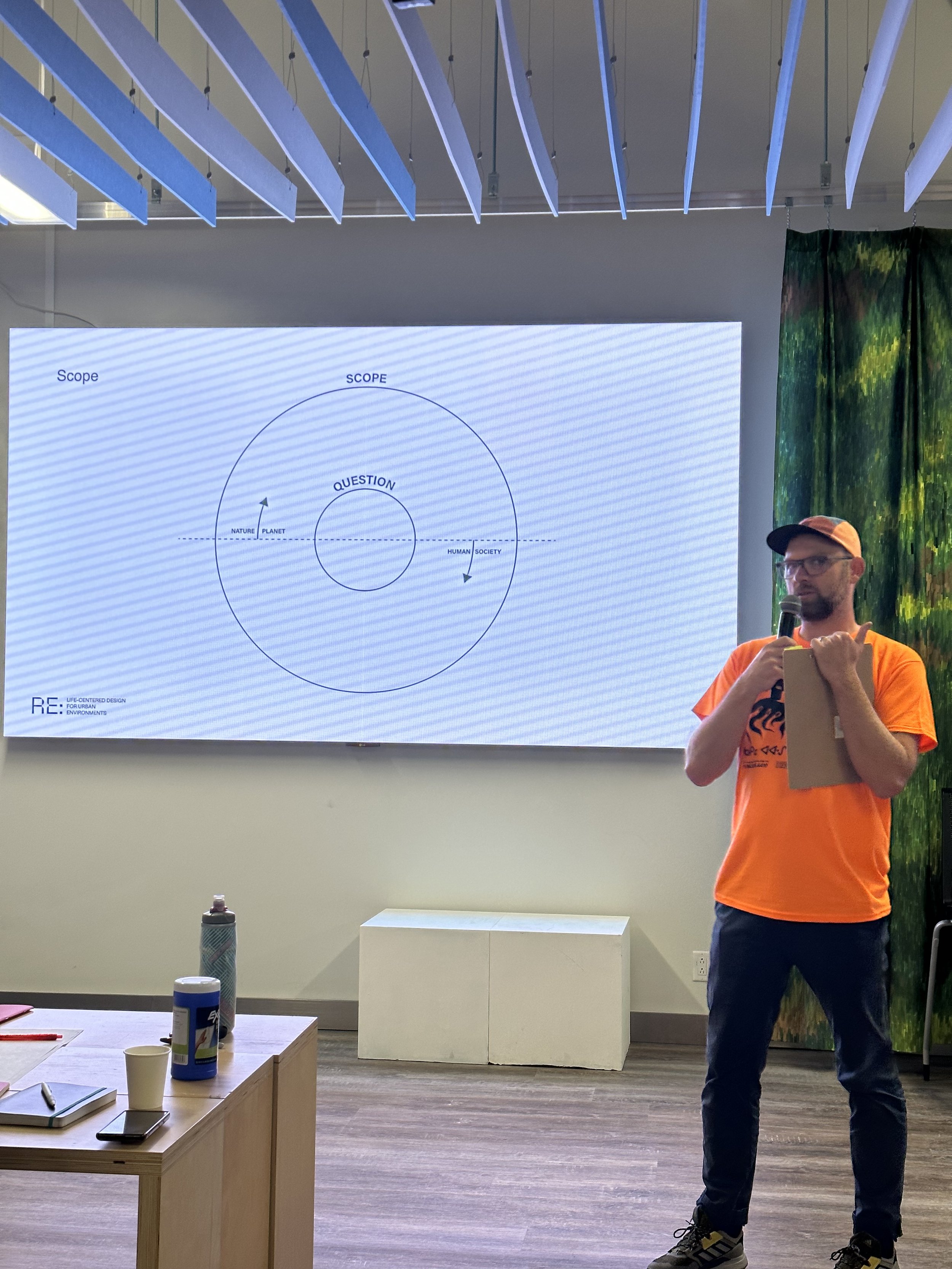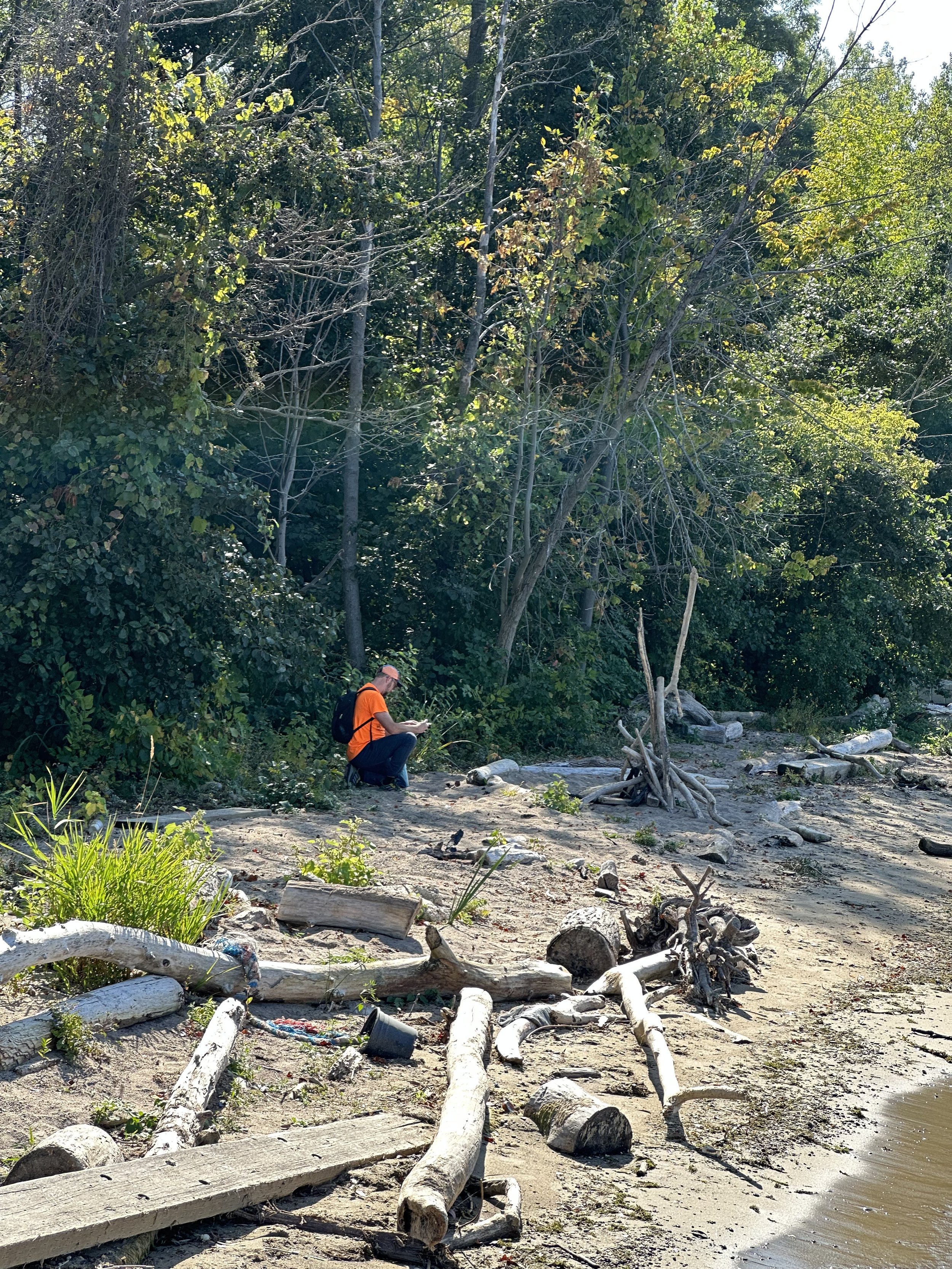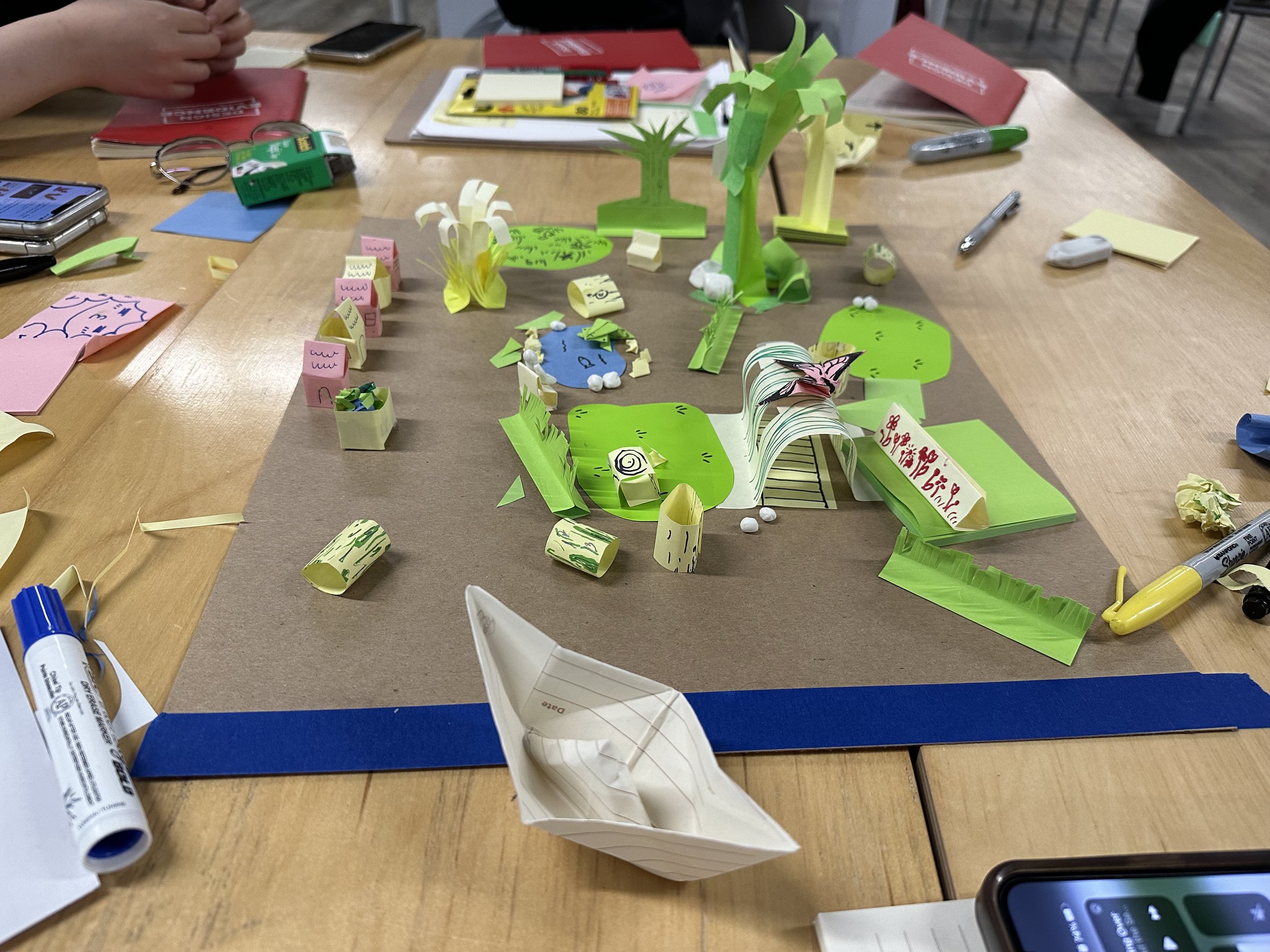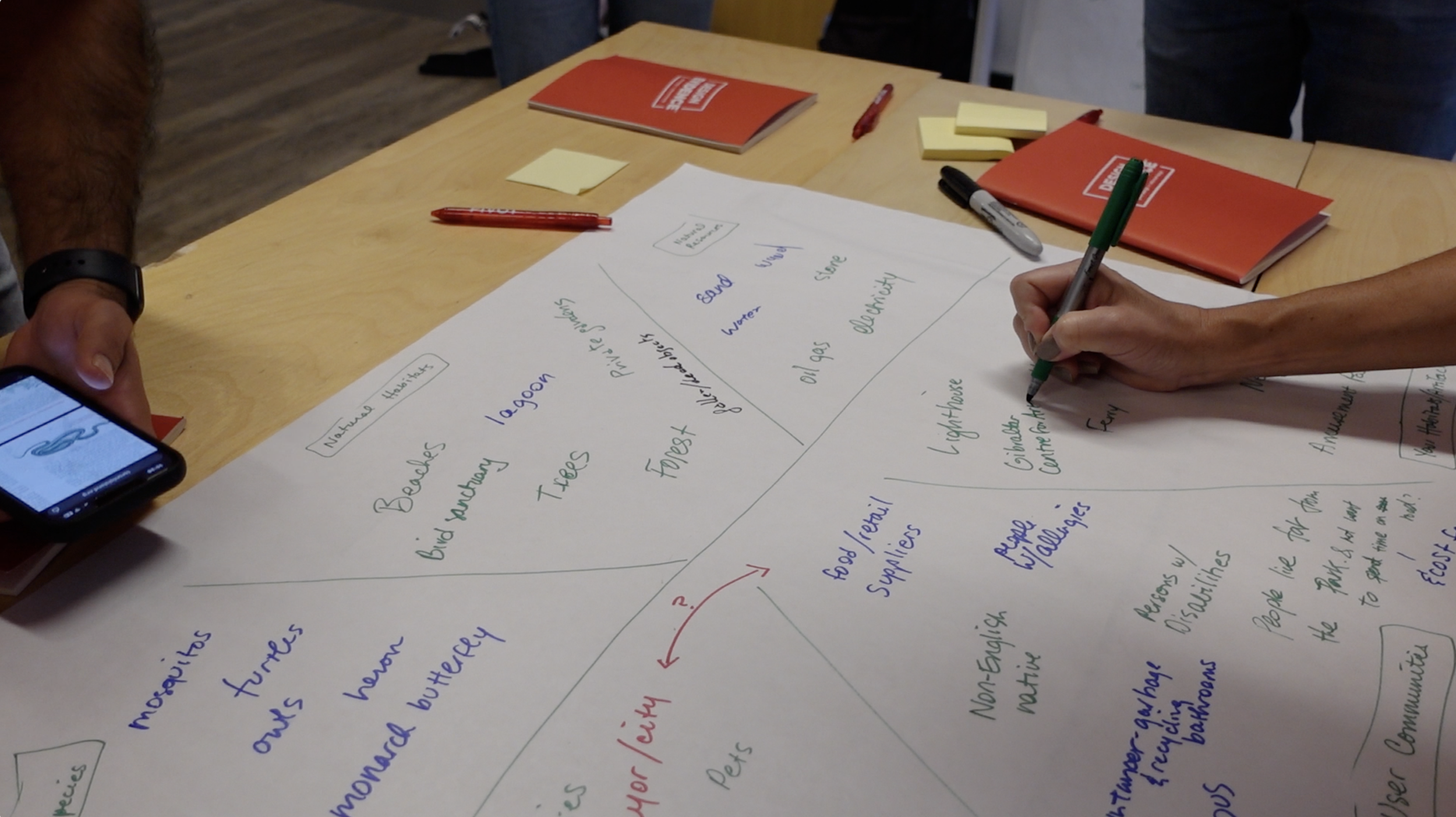The Workshop
On Sept 30 & Oct 1, 2023, we hosted a workshop Life-Centered Design For Urban Environments at the Brookfield Sustainability Institute and Ward’s Island in Toronto.
We invited 25 design professionals and students to learn about LCD principles and experiment with them together to better understand and empathize with the needs of the island and its users, both human & non-human. The goal was to envision and ideate new pathways for how local nature, communities and economy can thrive together. The question we started with was: “What if the Toronto Island was your client?”

Day 1: Discovery
Creating Spaces for Humans and Biodiversity
We began with research to gain a better understanding of the needs of all forms of life on and around the islands by:
Mapping the ecosystem of the Island
Immersing ourselves on Wards Island
Observing nature and life on the Island
Creating emotional narratives for the animals and plant life we observed
Day 2: Design
Ideating Sustainable Development Pathways
On the second day, we began to design potential solutions for new sustainable development pathways. We began by framing our design challenges, then moved into ideation and low-fidelity prototyping before presenting our ideas to the group.
What we learned:
From mapping the ecosystem:
An awareness of all the living creatures that inhabit the island, both seen and unseen, that should be considered. Seeing them all together in one map changes our perception and creates a sense of equality across all the inhabitants, both human and non-human.
From what we observed on the Toronto Islands
Humans who live there seem to have a regenerative lifestyle and a love for their environment, but visitors appear to be disconnected from the natural environment on the island. There is potential to improve this as all the elements are present to establish this connection in a way that is beneficial for everyone.
From the immersive experience to the Toronto Islands
Simply observing the ecosystem, both natural and human, allowed us to connect with nature and the island using all of our senses and increase our empathy for all of the life forms co-existing there.
From what we designed
The ideas that emerged were more holistic and beneficial for both humans and non-humans with a LCD approach than they likely would have been with a human-centered one. If implemented, the solutions have the potential not only to improve the overall experience of visiting the island, but also to continue the cycle of learning, empathy, and connection to nature with visitors..
